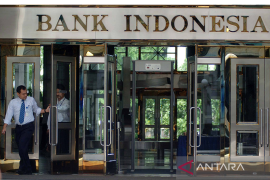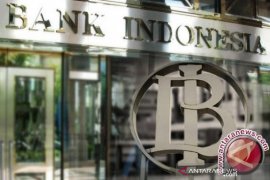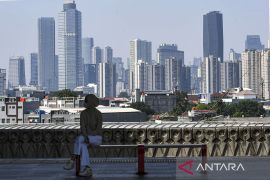"Hopefully, it will not reach 1.2 percent."Jakarta (ANTARA News) - Bank Indonesia (BI), the central bank, has predicted that inflation will reach 1.1 percent by the end of this month, as bad weather and floods continue to disrupt the country`s transportation and logistics networks.
"Before the flooding, we had predicted that inflation would reach around 0.9 percent. However, now it seems like it will rise to 1.1 percent," BI Governor Darmin Nasution said here on Monday after a government meeting.
Darmin expressed hope that the weather would return to normal before the end of January so inflation would not exceed 1.1 percent.
"Hopefully, it will not reach 1.2 percent," the BI governor stated.
In the 2013 state budget, the annual inflation rate has been assumed to be 4.9 percent, considering that the nation has enough food stocks to last it until the end of the year.
Previously, the Central Board of Statistics (BPS) disclosed that inflation reached 4.3 percent last year far below the macro-assumption of the 2012 revised state budget, at 6.8 percent.
The commodities that drove up inflation last year were rice, fresh fish, gold jewellery, cigarette filters and air freight rates, among other things.
Earlier, Bank Indonesia Executive Director of Research and Policy Perry Warjiyo had predicted that inflation would reach 0.9 percent by the end of January.
Perry noted that the inflation rate in January was in line with the rise in commodities prices, especially of basic household necessities such as rice, eggs and meat.
"The prices of basic household commodities, such as rice and spices, seem to be on the rise in January. However, the increase will not be significant, except in the case of chicken meat, which will see a steeper price increase than others," he stated.
Speaking about the floods that inundated Jakarta and other regions in Indonesia, Perry said the commodities and their distribution have be affected, but the stocks are safe.
He noted that the flood was unlikely to raise inflation expectation.
"Inflationary pressure seems to have increased since December last year due to the high rainfall seen across the country but it is predicted to ease in February. After that, of course, the harvest season will last until July," Perry explained.
"Inflation will be little bit higher in July, because school education fees are paid during that period. This is it what we call seasonal inflation," he continued.
However, Perry added, BI was optimistic that annual inflation would not exceed 5 percent.
(Uu.B003/INE/KR-BSR/F001)
Editor: Priyambodo RH
Copyright © ANTARA 2013












